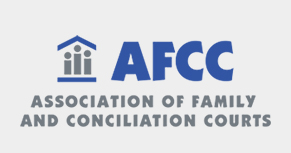
Our Cognition is our thought process and our thoughts have EVERYTHING to do with our feeling and doing (behaviors). Changing one’s way of thinking in order to change how we feel and the choices we make can be challenging.
Our cognition is created over time through what we are told or shown in our environment. This can be through direct verbal messages such as someone putting another down, how we interpret visual cues (e.g., body language), as well as social media messaging (e.g., cyber bullying, texts, etc.). When our cognitions become twisted they take the form of distortions. In the CBT (cognitive behavioral therapy) world, these distorted thoughts are often referred to as “negative thinking traps,” as Beck, Burns, and others have documented:
The Big 9 Negative thinking Traps
- Black and White thinking – this is the all or nothing mindset, things are either good or bad, wrong or right, perfect or a complete failure. In this mindset, there is no middle ground.
- Focusing on the Negatives – This is just as it sounds, the mind has a negative filter and struggles to see the optimism or the positive things in life.
- Overgeneralizing – The Always or Never thought process. “It is always bad,” “You always do this,” “I’ll never be successful,” and so on. When the mind focuses on something as “always” or “never” there is little room for seeing the positives, even in brief moments.
- Personalization – This is all about you. When someone is angry, sad, or upset the mind directs it as a personal attack. “They’re angry. They must be angry at me. I must have done something wrong.”
- Catastrophizing – Taking things to the extreme. Someone forgets your birthday. “They must not like me or care about me anymore.” You fail one assignment in class and then think “I am a failure and now won’t make it to college.”
- Perfectionism – Thinking that you are not allowed to make a mistake.
- Mind reading – Assuming what another person is thinking or how they will react before having the opportunity to give them time to act or respond.
- Minimizing/discounting – This mindset is where a person will focus on their failures and not consider their successes.
- Blaming – Not taking accountability. Focusing on other people’s problems and errors, placing blame on them. “It’s their fault I did not get to work on time.” “If the teacher was better at teaching I would do better in class.”

All of these negative thinking traps are present in any given individual, at one time or another. We often experience these over the years based on what we see around us, what we hear, and what we are taught through the messages we are given. These negative thoughts are often accompanied by feelings of sadness, fear, worry, anger, and hopelessness.
By identifying how and when these negative cognitions become triggered, they can be challenged to allow more realistic thoughts to settle in. This is best done through counseling. I would love to show you how to tame these thinking traps and get some balance back into your life.

Contact our office today to schedule an appointment with me, Angela N. Lujan, LMHC, MHP, CMHS. She is accepting appointments at our Silverdale location.
Angela N. Lujan, LMHC, MHP, CMHS
NW Family Psychology – Silverdale





